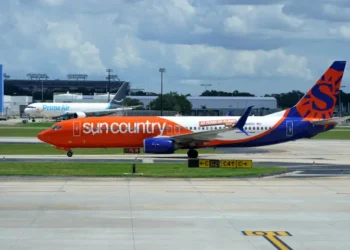The World Health Organization (WHO) has begun vaccinating frontline health workers and close contacts of infected individuals in the Democratic Republic of the Congo’s Kasai Province, where an Ebola outbreak was officially declared earlier this month.
On Sunday, the WHO confirmed that 400 doses of the Ervebo Ebola vaccine, drawn from the country’s stockpile of 2,000, had already been dispatched to Bulape, the epicentre of the outbreak. The organization added that the International Coordinating Group on Vaccine Provision has approved the shipment of 45,000 additional doses to bolster the response.
The outbreak is the first to hit Congo in three years. With its dense tropical forests serving as natural reservoirs for the virus, the DRC has historically remained at the centre of multiple Ebola emergencies since the disease was first identified in 1976 near the Ebola River. Ebola causes fever, body aches, diarrhoea, and in survivors, can linger in the body only to resurface years later.
According to the latest figures from the Ministry of Health in Kinshasa, there are currently 32 suspected cases, 20 confirmed cases, and 16 deaths.
WHO Programme Area Manager Patrick Otim, speaking at a Geneva briefing last week, warned that “containing the outbreak is possible, but it will be challenging if we miss the window of opportunity.” He urged for more support to strengthen the response by the Congolese government and international partners.

Risk Of Wider Regional Spread
Otim also cautioned that the outbreak could expand beyond its current boundaries. One new case has already been confirmed 70 kilometres from Bulape, raising concerns of further spread. He added that there remains a “moderate risk of it spreading to other countries, in particular neighbouring Angola.”
Aid workers fear that Congo may struggle to mount an effective response, pointing to recent cuts in foreign assistance and the dismantling of the U.S. Agency for International Development under President Donald Trump. These developments, they argue, have reduced the resources available to contain such high-risk epidemics.
The WHO stressed that while vaccines are a critical tool, surveillance, rapid testing, and community engagement remain equally essential to curb transmission.
Ebola virus disease (EVD) has haunted Congo for decades. Since 1976, the country has experienced more than 15 outbreaks, many of which have occurred in remote or conflict-affected areas where weak infrastructure hampers containment efforts.
The 2018–2020 epidemic in eastern Congo marked the second-largest Ebola outbreak in history, leaving over 3,000 infected and more than 2,000 dead. Despite these staggering numbers, rapid interventions by the DRC government, WHO, and partner organizations prevented a wider global crisis.
Over time, international vigilance, improved diagnostic capabilities, and the availability of vaccines have strengthened the global response to Ebola. However, the virus continues to pose a major threat. Imported cases have been recorded in countries outside Africa, often involving travelers or healthcare workers exposed during outbreaks.
Experts insist that Congo’s ability to deploy vaccines quickly, combined with constant surveillance, will determine whether the latest outbreak can be contained.
Continuous monitoring and rapid intervention remain vital not only for Congo but also for protecting neighbouring states from cross-border spread. The WHO has reiterated that global cooperation is crucial in tackling what remains one of the world’s deadliest infectious diseases.
READ ALSO: Cedi Stability Debate Heats Up Amid Political Clash



















